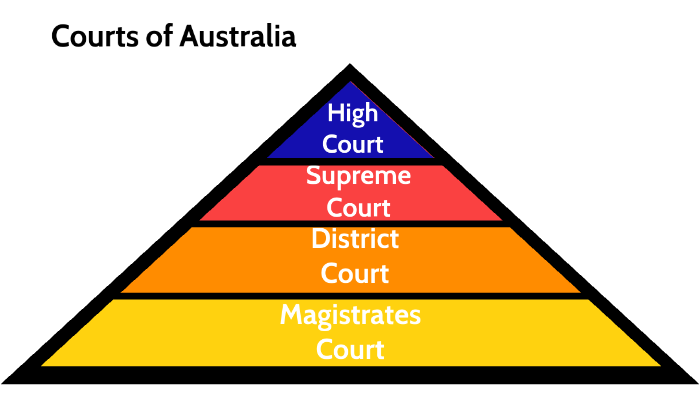Year 9 Politics and Law 1
1/26
Earn XP
Description and Tags
based on the Western Australian curriculum year 9 politics and law course
Name | Mastery | Learn | Test | Matching | Spaced |
|---|
No study sessions yet.
27 Terms
6 key principles of natural justice
the right of a person to participate in legal proceedings in which they have interest
the right of the person accused of wrongdoing (defendant) to know the accusation made against them
the right of the defendant to have a hearing, during which they are able to present evidence
the right to have a matter heard before a court which is free from bias
the right to test evidence presented in the case
the right of the accused to not have previous criminal convictions or accusations brought up during the trial.
the right of a person to participate in legal proceeding in which they have interest
key principle of natural justice → people must be allowed to be present when legal decisions are made that affect them
the right of a person accused of wrongdoing (the defendant) to know the accusation made against them
key principle of natural justice → the defendant should be told what they are being accused of, which allows them to prepare their case
the right of the defendant to have a hearing, during which they are able to present evidence
key principle of natural justice → courts must allow people to present evidence that supports their case
the right to have a matter heard before a court that is free from bias
key principle of natural justice → judges and juries must only look at evidence and not let personal feelings and opinions or past experiences influence their decisions
the right to test the evidence presented in the case
key principle of natural justice → each side can question the witnesses who give evidence for the opposing side.
the right of the accused to not have previous criminal convictions or accusations brought up during the trial
key principle of natural justice → past convictions and mistakes shouldn’t be used against someone unless they are directly related to the case
5 key features of the rule of law
independent judiciary
the accused should not be forced to incriminate themselves
legal defence must operate without interference
accused must be informed of allegations
criminal laws must never be retrospective
rule of law
the principle that all people are equal and must obey the law, and it eliminates the use of arbitrary power and ensures the laws are followed by everyone.
4 factors that undermine justice
coercion of suspects and witnesses
corruption
court delays
trial by media
coercion of suspects and witnesses
factors that can undermine justice → legal processes must be followed when investigating a crime to ensure suspects and witnesses are treated fairly.
it undermines justice as suspects or witnesses may feel forced to answer questions against their will
corruption
factors that can undermine justice → dishonest or unethical behaviour that causes people to break the rules for their own gain.
it undermines justice as one side has an unfair advantage
eg. bribery
court delays
factors that can undermine justice → court delays can be caused by lack of legal assistance for those who can’t afford a lawyer, complex and time-consuming processes, and increasing complexity and number of cases.
it undermines justice as it doesn’t give people fair access to the legal system as it increases cost and emotional stress, and reduces the ability of witnesses to recall evidence.
trial by media
factors that can undermine justice → the impact of media coverage on a person’s reputation and their crime can create a perception of guilt or innocence before going to court.
it undermines justice as it eliminates the presumption of innocence.
natural justice
the principles ensuring that the court process is fair for those involved
justice
society’s concept of fairness, which requires that legal processes are based on consistently applied rules in an unbiased manner, and that individual laws are based on social values and human rights
solicitor
people who engage in prepatory work and advice for a court case
barrister (not baristas :))
lawyers who represent their clients before courts
plaintiff
the party in a civil case that is initiating the case for improper or unlawful behaviour from the defendant
judge
an experienced solicitor or barrister who has been appointed as head of the court
prosecutor
the party in a criminal case that is responsible for proving the accused guilty
accused
the party accused of committing a crime in a criminal case
MMOOOOONBEAM ICE CREAM 🌙🍦✨🦄
sorry for the jumpscare im bored but i have to keep my 100% humanities score streak 😭😭😭😭😭
defendant
the party in a civil case being accused of being improper or unlawful
jury
a body of randomly selected people sworn to give a verdict in a legal case on the basis of evidence given in court
court hierarchy
